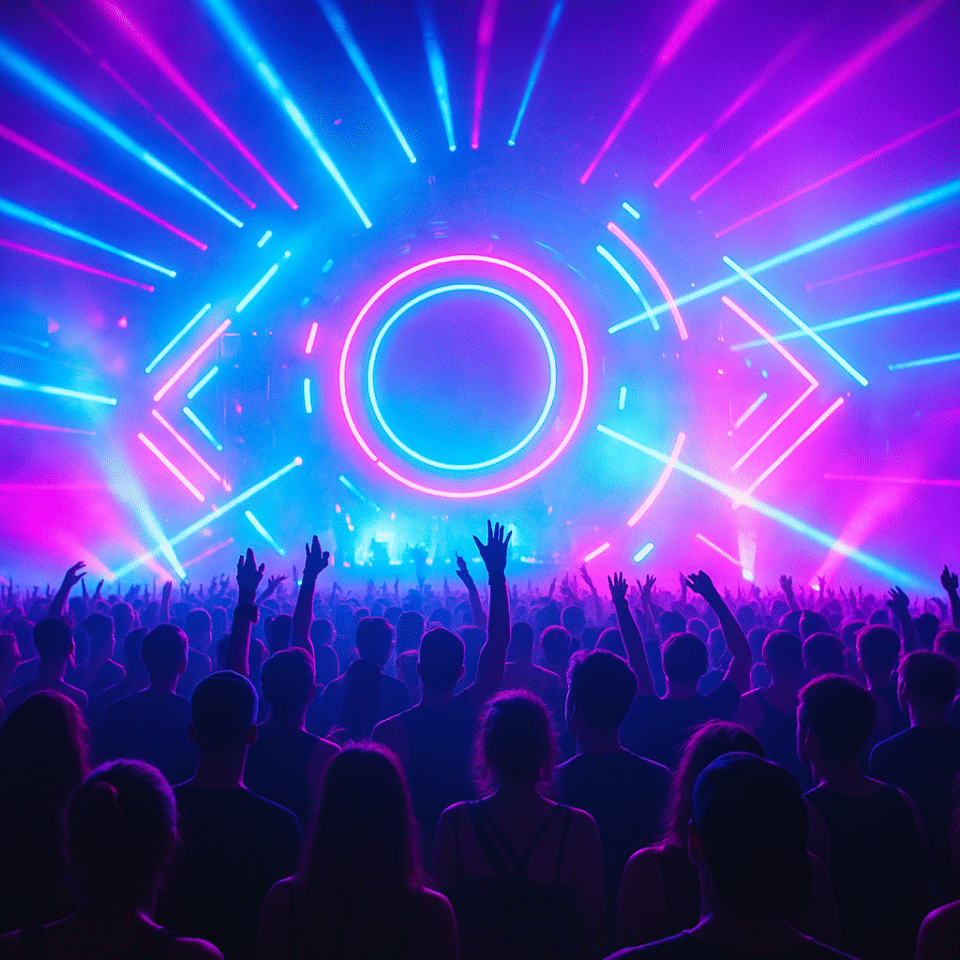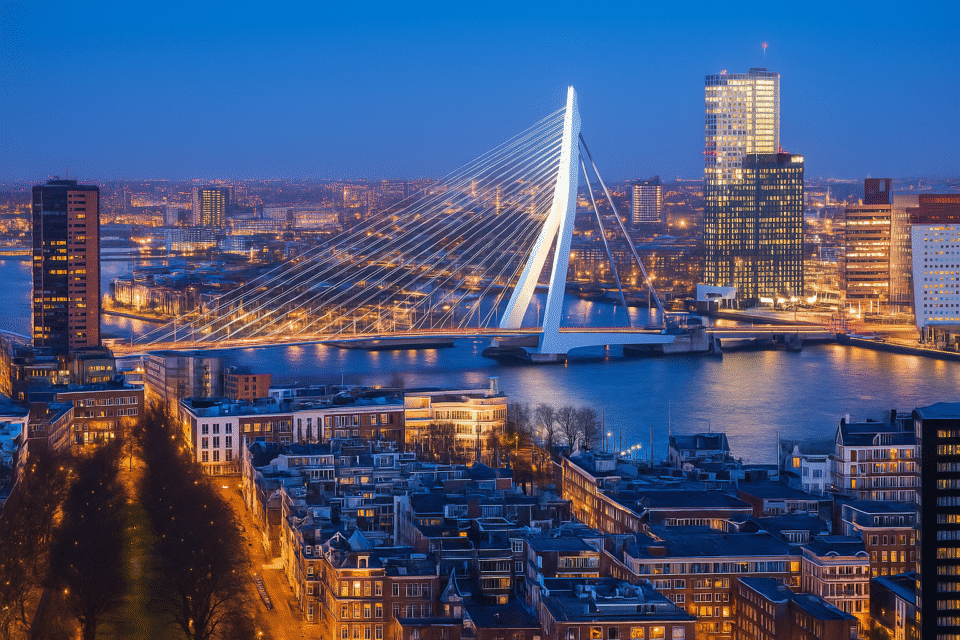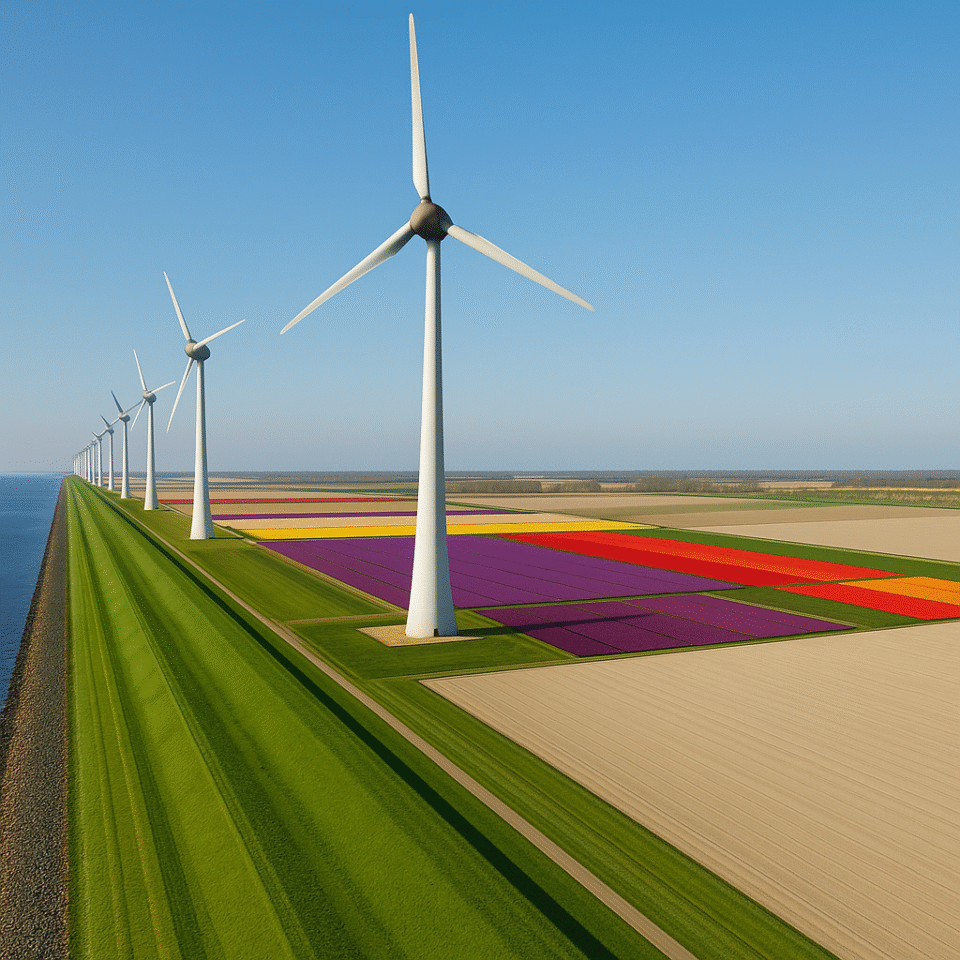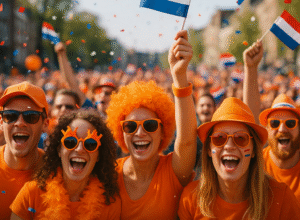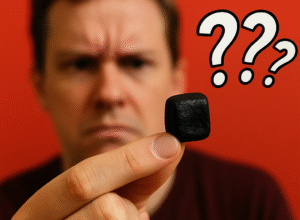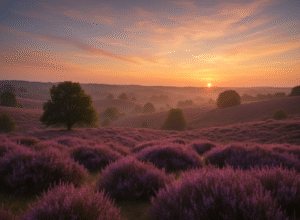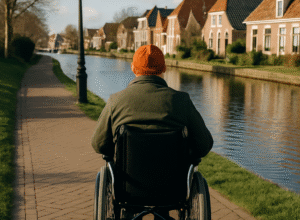The Sound of a Nation: Why Dutch Music Festivals Matter More Than You Think
Living in the Netherlands as an outsider, you’ll quickly discover that music festivals aren’t just weekend entertainment—they’re woven into the cultural fabric of this small nation in ways that might surprise you.
I’ll be honest: the first time someone mentioned Amsterdam Dance Event to me, I nodded politely while internally wondering how an entire city could revolve around electronic music for a week. The bass-heavy beats echoing from festival grounds across Dutch summers initially felt like cultural noise I couldn’t decode. Yet after years of observing this phenomenon from the sidelines, I’ve come to understand that dismissing Dutch music festivals as mere party scenes would be like ignoring jazz in New Orleans or opera in Vienna.
For Americans trying to understand Dutch culture, the festival landscape offers a fascinating window into this nation’s soul. Whether you’re planning a summer visit, considering a move, or simply trying to grasp why your Dutch colleagues disappear en masse during festival season, understanding this cultural cornerstone will deepen your appreciation for what makes the Netherlands tick, even if you never set foot on a festival ground yourself.
A Global Epicenter for Electronic Music
The Netherlands didn’t accidentally become the world’s EDM capital. This transformation began in the 1990s when Dutch DJs and producers started experimenting with electronic sounds, eventually creating genres like gabber, hardstyle, and progressive house that would influence global dance music. Names like Tiësto, Armin van Buuren, and Martin Garrix didn’t just happen to emerge from this small country; they’re products of a culture that embraced electronic music when much of the world still considered it fringe.
The Dutch approach to electronic music reflects broader cultural values: innovation without pretension, technical excellence, and an instinct for bringing people together. Dutch DJs consistently rank among the world’s highest-paid, not just because of their talent, but because they understand how to create communal experiences that transcend language barriers. This skill proved particularly valuable in a country where multiple languages and cultures intersect daily.
What Americans often find surprising is how mainstream this music became in the Netherlands. While EDM fought for legitimacy in the US music scene, Dutch radio stations, clubs, and eventually massive outdoor festivals were already treating electronic music as high art. The Netherlands became a testing ground where producers could experiment and audiences could embrace sounds that might take years to reach American airwaves.
The Big Names: A Festival for Every Season
Dutch festival culture extends far beyond electronic music, though that’s where it commands global attention. Amsterdam Dance Event (ADE) transforms the capital each October, bringing over 400,000 visitors for what’s essentially a week-long conference, showcase, and city-wide party. For Americans familiar with SXSW, imagine that energy concentrated in a city one-tenth the size of Austin.
Summer brings the heavy hitters: Defqon.1 attracts hardstyle devotees from across Europe, while Mysteryland claims the title of world’s longest-running electronic music festival. Lowlands offers a more eclectic mix, combining indie rock, electronic, and everything between across a weekend that feels like a temporary city.
But Dutch festival culture isn’t monolithic. North Sea Jazz in Rotterdam attracts jazz legends and curious newcomers alike. Down the Rabbit Hole curates indie and alternative acts in an intimate setting that feels more like a musical garden party. Into the Great Wide Open takes place on the Wadden Sea island of Vlieland, where festival-goers arrive by ferry and camp under starry skies.
What unites these diverse events isn’t genre but approach: meticulous organization, environmental consciousness, and an assumption that music festivals should be safe, welcoming spaces where diverse crowds can gather. American festival veterans often note how smoothly Dutch events run—from efficient entry systems to plentiful water stations and surprisingly clean facilities.
Why the Dutch Love Festivals
Understanding Dutch festival obsession requires understanding the country itself. In a nation where you can cross from border to border in three hours, festival culture became a way to create temporary escapes without extensive travel. The excellent train system means you can attend a festival in another province and still sleep in your own bed—or at least catch the last train home.
The Dutch concept of gezelligheid—that untranslatable sense of coziness and togetherness—finds perfect expression in festival culture. Unlike American festivals that often emphasize individual experience or status, Dutch festivals prioritize collective enjoyment. You’ll see groups of friends who’ve been attending the same festivals together for decades, often wearing matching outfits or themes that took months to plan.
Liberal attitudes toward alcohol and drug use create an environment where adults can make informed choices without excessive policing or judgment. This doesn’t mean Dutch festivals are lawless—quite the opposite. Harm reduction services, medical staff, and clear guidelines create safer spaces than prohibition-based approaches might achieve.
Perhaps most importantly, Dutch social culture revolves around planning and shared experiences. Calendar coordination among friend groups begins months in advance, with festival tickets serving as anchors around which summer social schedules revolve. The Dutch approach festivals not as spontaneous adventures but as carefully orchestrated gatherings that strengthen social bonds.
For Those Who Don’t Attend
If you’re reading this and thinking “this all sounds overwhelming,” you’re not alone—and you’re not missing some essential Dutch experience. Plenty of Dutch people don’t attend festivals, finding the crowds, noise, or expense unappealing. The Netherlands offers countless other ways to engage with music culture, from intimate venue concerts to free outdoor summer performances in city parks.
You can appreciate festival culture from a comfortable distance. Notice how the entire country shifts gears during festival season, with news coverage, special train schedules, and conversations that assume shared festival knowledge. Observe how Dutch colleagues plan vacation time around major festivals, or how certain weekends see entire neighborhoods empty as residents head to festival grounds.
Understanding this culture also helps explain other Dutch social phenomena: the importance of group planning, the assumption that everyone deserves access to cultural experiences, and the way music serves as social glue in a diverse society. You don’t need to love EDM to appreciate how festivals reflect broader Dutch values of organization, inclusivity, and collective joy.
For Americans used to music festivals as expensive, exclusive experiences, the Dutch approach offers interesting contrasts. Many festivals provide payment plans, group discounts, and volunteer opportunities that make attendance accessible across economic backgrounds. The emphasis on sustainability, from reusable cups to bike parking, reflects environmental consciousness that permeates Dutch culture.
Closing Thoughts
After a few years of observing Dutch festival culture from the outside, I’ve developed something between curiosity and admiration for this phenomenon I’ll likely never fully join. There’s something beautiful about watching an entire nation embrace temporary communities built around shared musical experiences, even if those experiences aren’t personally compelling; I’m much more a rocker than a raver.
What strikes me most is how festivals reveal the Dutch talent for creating structure around spontaneity—meticulous planning that enables collective joy. Whether you’re drawn to the music, fascinated by the logistics, or simply trying to understand why your Dutch friends disappear every summer weekend, festival culture offers insights into how this small nation thinks big about bringing people together.
You don’t need to attend a festival to appreciate what they represent: a society that prioritizes shared experiences, embraces cultural diversity, and believes everyone deserves access to moments of transcendence—even if that transcendence comes at 140 beats per minute. Understanding this piece of Dutch culture might not change your music preferences, but it will certainly deepen your appreciation for the complex, contradictory, endlessly fascinating nation that hosts them.
